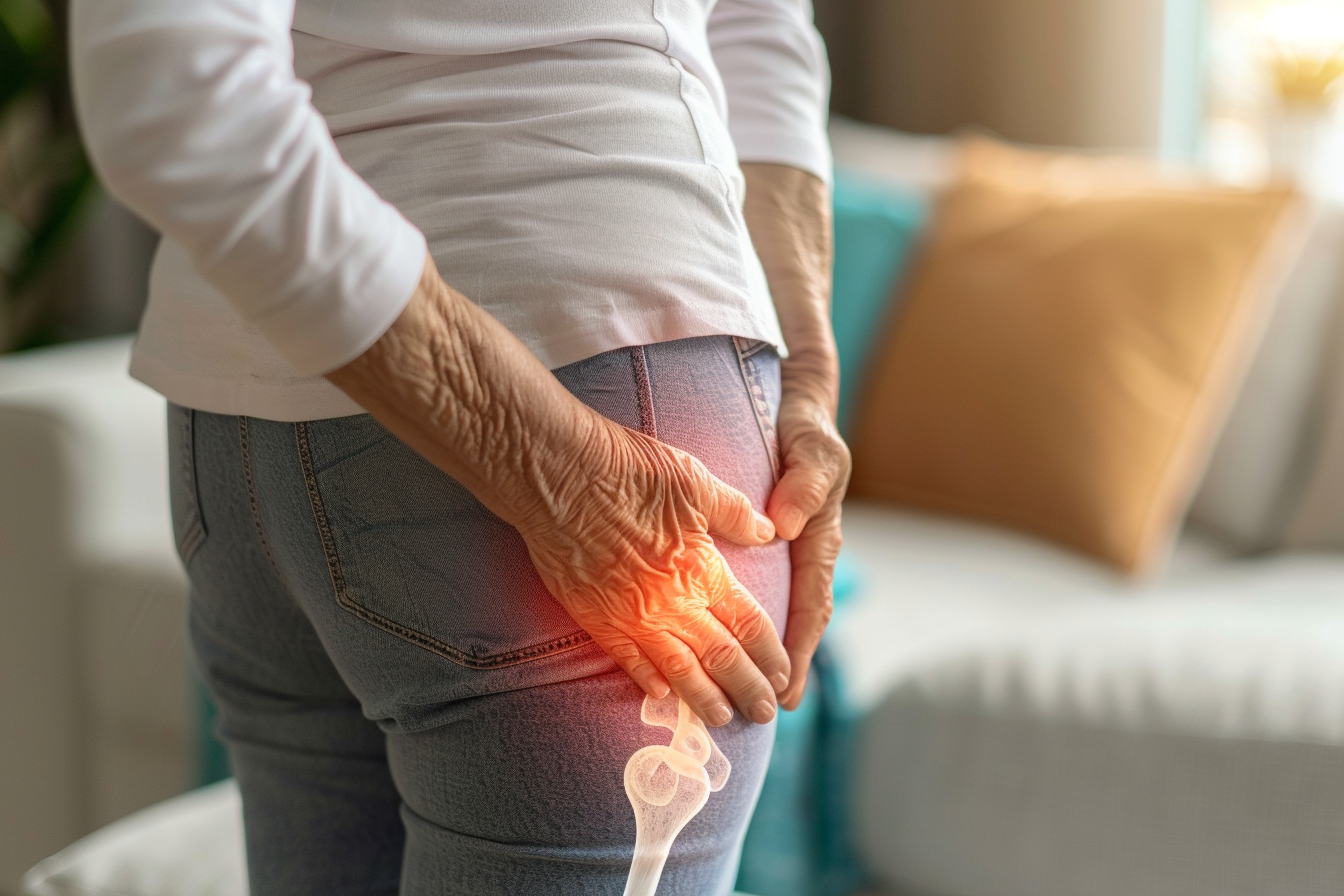Discover Knee Gel Injection Treatment Options Across Australia
Knee gel injections are a significant advancement in managing knee pain, offering a minimally invasive solution for individuals seeking relief. This treatment has gained traction in numerous cities across Australia, providing a viable option for those experiencing discomfort. With ongoing trials and established clinics available, individuals can explore effective treatment plans tailored to their specific needs

Knee gel injections have emerged as a valuable treatment option for individuals suffering from knee pain and osteoarthritis across Australia. These specialized injections deliver hyaluronic acid—a naturally occurring substance in joint fluid—directly into the knee joint to improve lubrication, reduce inflammation, and potentially slow the progression of cartilage damage. For patients who haven’t responded adequately to conservative treatments like physiotherapy or medication but aren’t ready for surgical intervention, knee gel injections can provide meaningful relief and improved functionality.
What are knee gel injections and how do they work?
Knee gel injections, also known as viscosupplementation, involve introducing hyaluronic acid-based gel into the knee joint cavity. Hyaluronic acid is a naturally occurring substance in synovial fluid that provides lubrication and shock absorption in healthy joints. In patients with osteoarthritis, this natural hyaluronic acid becomes diluted and breaks down, reducing its protective capabilities.
When administered by a qualified healthcare professional, these gel injections supplement the joint’s natural fluid, improving viscosity and providing better cushioning between the bones. The procedure typically takes about 20 minutes in a clinical setting. The doctor first cleans the injection site, may apply a local anesthetic, and then precisely injects the gel substance into the joint space using ultrasound guidance in some cases for optimal placement.
Different formulations exist, with some requiring a single injection while others involve a series of three to five injections administered weekly. The molecular weight of the hyaluronic acid product can vary, with higher molecular weight products generally staying in the joint longer and potentially providing more durable results.
What benefits can patients expect from knee gel injections?
Patients receiving knee gel injections often report several meaningful improvements in their condition. Pain relief is typically the primary benefit, with many patients experiencing significant reduction in discomfort within 2-4 weeks after completing the treatment course. This pain relief can last anywhere from 3 to 12 months depending on the individual and the specific product used.
Improved mobility represents another substantial benefit, as patients often experience better range of motion and walking ability following treatment. This functional improvement allows many to return to activities they previously avoided due to pain and stiffness. The reduction in inflammation can also contribute to better overall joint health and potentially slow the progression of osteoarthritis, though research continues to evaluate long-term protective effects.
Unlike corticosteroid injections, which primarily address inflammation, hyaluronic acid gel injections actually supplement the joint’s natural lubricating fluid, potentially offering more comprehensive and longer-lasting benefits. Additionally, these injections typically have fewer side effects compared to long-term use of oral pain medications, making them an attractive option for patients concerned about medication side effects or interactions.
Where can patients find knee gel injection treatments in Australia?
Knee gel injections are widely available across Australia’s healthcare landscape. Orthopedic specialists and rheumatologists commonly provide these treatments in private practices throughout major cities like Sydney, Melbourne, Brisbane, Perth, and Adelaide. Many sports medicine clinics also offer viscosupplementation as part of their comprehensive joint care programs.
Public hospitals with orthopedic departments may provide knee gel injections, though waiting periods can be longer than in private settings. Additionally, specialized pain management clinics frequently include these injections among their treatment options for chronic knee pain. In regional and rural areas, availability may be more limited, but many larger regional centers now offer this treatment option.
Patients should consult their general practitioner for an initial assessment and referral to an appropriate specialist. Medicare provides partial coverage for these injections when deemed medically necessary, though out-of-pocket expenses vary depending on the provider and specific product used. Private health insurance may offer additional coverage depending on the level of extras cover.
What types of knee gel injection products are available in Australia?
Australia has several approved hyaluronic acid products for knee injections, each with distinct characteristics. Synvisc and Synvisc-One are commonly used options, with the latter requiring only a single injection rather than the traditional three-injection course. Durolane represents another single-injection option with a higher concentration of hyaluronic acid designed for longer-lasting effects.
Orthovisc and Monovisc offer alternative formulations, with clinical studies suggesting varying durations of effectiveness. Hyalgan and Supartz represent more traditional options that typically require a series of weekly injections. The molecular weight of these products varies significantly, which can influence their residence time in the joint and potentially their effectiveness for different patient profiles.
Your specialist will recommend the most appropriate product based on your specific condition, medical history, and treatment goals. The choice between single-injection and multiple-injection products often depends on factors including severity of osteoarthritis, patient convenience, and cost considerations.
What are the costs and availability of knee gel injections across Australia?
| Product | Provider Type | Cost Estimation (per injection) |
|---|---|---|
| Synvisc-One | Orthopedic Specialists | $450-$650 |
| Durolane | Rheumatologists | $500-$700 |
| Monovisc | Sports Medicine Clinics | $400-$600 |
| Hyalgan (series) | Pain Management Centers | $300-$450 (per injection) |
| Orthovisc (series) | Private Hospitals | $350-$550 (per injection) |
Prices, rates, or cost estimates mentioned in this article are based on the latest available information but may change over time. Independent research is advised before making financial decisions.
The total treatment cost varies significantly depending on whether a single injection or series is required, specialist consultation fees, and potential additional costs like ultrasound guidance. Medicare provides a rebate for the specialist consultation but typically not for the product itself. Private health insurance coverage varies widely between policies, with some top-tier extras packages providing partial reimbursement.
Regional variation in pricing exists across Australia, with metropolitan areas generally offering more competitive pricing due to greater provider availability. Patients should inquire about total treatment costs, including all associated fees, when consulting with potential providers.
Who are ideal candidates for knee gel injection treatments?
Knee gel injections are typically most effective for patients with mild to moderate osteoarthritis who haven’t responded adequately to conservative treatments like physical therapy, weight management, and over-the-counter pain medications. They can be particularly beneficial for individuals looking to delay knee replacement surgery or those who aren’t suitable surgical candidates due to age or health conditions.
Factors that may influence treatment success include the degree of joint damage, patient age, and overall health status. Those with advanced osteoarthritis showing significant joint space narrowing on X-rays may experience less dramatic benefits. Similarly, patients with inflammatory arthritis like rheumatoid arthritis might not respond as well to hyaluronic acid injections compared to those with osteoarthritis.
A thorough evaluation by a qualified healthcare provider is essential to determine if knee gel injections are appropriate for an individual’s specific condition. This typically involves physical examination, review of medical history, and often imaging studies to assess the degree of joint damage.
Knee gel injections represent a valuable treatment option in the continuum of care for knee osteoarthritis across Australia. They offer meaningful pain relief and functional improvement for many patients, potentially delaying the need for more invasive interventions. With various products available and widespread accessibility through specialists and clinics nationwide, Australians suffering from knee pain have increasing opportunities to benefit from this treatment approach.
This article is for informational purposes only and should not be considered medical advice. Please consult a qualified healthcare professional for personalized guidance and treatment.




